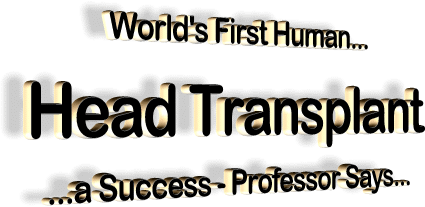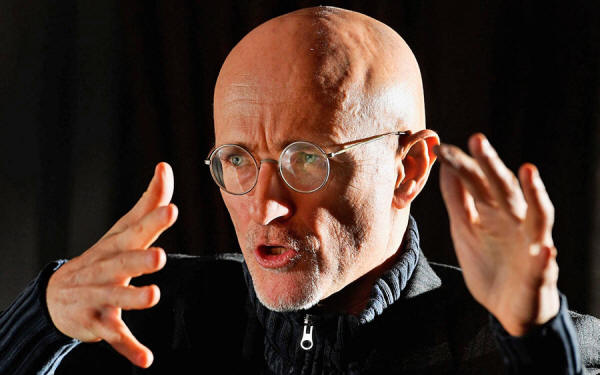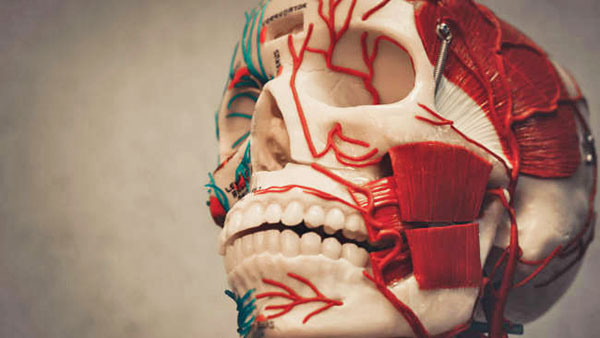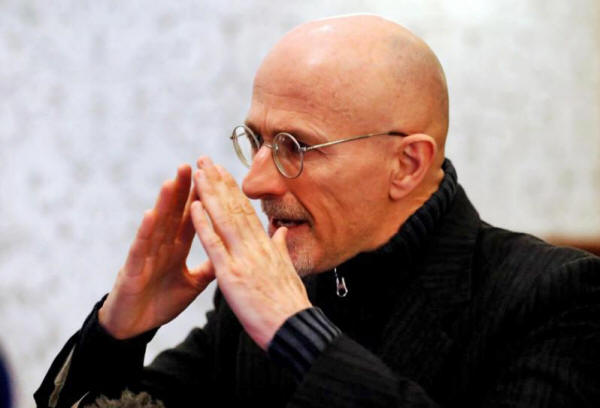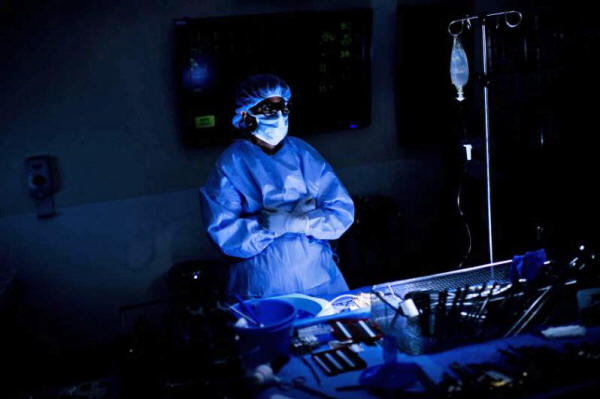|
from
NYPost Website as he speaks to the media during a press conference in Glasgow, Scotland. AP
Canavero said the successful transplant by the surgeons at Harbin Medical University shows that his techniques for reconnecting the spine, nerves and blood vessels to allow two bodies to live together will work.
Although Russian computer scientist Valery Spiridonov, who suffers from a muscle-wasting disease, volunteered to become the first head transplant patient, the team has said the first recipient will likely be Chinese, because the chance of a Chinese donor body will be higher.
Canavero, who has claimed to have successfully carried out the surgery on rats and monkey, said scientific papers detailing the procedure on the corpse, as well as more details of the first live human transplant, would be released in the next few days.
He said a live operation would take place in China because his efforts to get backing for the project were dismissed by the medical communities in the US and Europe, according to USA Today.
Canavero plans to sever the spinal chords of the donor and recipient with a diamond blade.
To protect the recipient's brain during the transfer, it will be cooled to a state of deep hypothermia, he said.
He said Friday that his team has rehearsed his techniques with human cadavers in China, but there are otherwise no known human trials, USA Today reported.
Most medical experts say the procedure is fraught with danger and profound biomedical ethical questions.
Dr. James Giordano, a professor at Georgetown University Medical Center in Washington, told USA Today that not enough rigorous study has been conducted ahead of such a procedure.
He said patients might be better served if Canavero focused his efforts on spinal reconstruction, not transplants.
But he did give Canavero some credit for his pioneering work.
Assya Pascalev, a biomedical ethicist at Howard University in Washington, told the paper that there are major unanswered questions about the identity and rights of the recipient.
-
But there's a Catch -
from
IFLSscience Website
The first human transplant on human cadavers has been done. A full head swap between brain-dead organ donors "is the next stage," Canavero told the crowd. Chala/Shutterstock
He revealed the news at a press conference in Vienna on Friday morning, The Telegraph reports.
Professor Canavero claims the feat was carried out during an 18-hour operation at Harbin Medical University in China, during which a team of surgeons successfully severed then reconnected the spinal cord, nerves, and blood vessels in the spine and neck.
The operation was led by Dr Xiaoping Ren, a surgeon who has previously transplanted the head of a monkey and numerous rodents.
Harbin Medical University is expected to write a full report on the operation within the next few days.
In a phone interview today, Canavero told USA Today that the operation will take place in China because the scientific establishment and authorities of Europe and the US were unwilling to support the contentious surgery.
The eccentric Italian's plans to pull off the first live human head transplant have been surrounded and fueled with controversy.
Back in 2015, he estimated that the operation would be done and dusted by 2017, however that's looking unlikely considering the recent rate of developments.
Even though Canavero has spent the past few year writing scientific studies on the feat, massive doubts are continuing to be cast onto the scientific legitimacy of his big promises.
Arthur Caplan, head of medical ethics at Langone Medical Center of New York University, said Canavero was,
Speaking to Wired in May of this year about head transplant surgery, neuroscientist Dean Burnett said:
Canavero's TEDx Talk can be viewed below:
-
Head Transplants about to Happen in
China - from Yahoo Website
Government
General Hospital, Chennai
But Where are the Bodies
Coming From? Whether or not we believe head transplants will "work" or whether or not we want them to happen, the fact is the technology to perform them is being developed in China right now.
We have been disappointed by the initial responses from experts weighing in on the matter.
So far the general response has been either to mock the character of Sergio Canavero, the neurosurgeon proposing the operations, or ignore the subject in the hope it goes away.
But we think these opinions and the reporting on this procedure has missed two critical questions:
Canavero's laboratory was initially based in Italy, but his research was made impossible there, so he sought other locations and funding for the human head transplant project.
He found a home for the project in China, where he is now joined by Xiaoping Ren, from Harbin Medical University.
Technological advancement is a major driver for economic vitality.
Investment in neuroscience is not just about health, it's about commerce...
It is our suspicion that the authorities in China supporting this procedure are doing so wagering that a successful transplant will demonstrate to the world the dazzling level of technological achievement in the country. Perhaps it will.
At a minimum, this procedure reveals that Chinese authorities believe there is no cost too high for raising China's profile on the world stage.
But it also reveals something else that we think is important:
What is death?
In the U.S., the Uniform Determination of Death Act states that an individual who sustains irreversible cessation of all functions of their entire brain, including their brainstem, is dead.
But China has no brain death standard, although one is being developed.
We must therefore ask:
An internationally recognized practice for ensuring ethical (and legal) research with human participants is acquiring what is called "informed consent."
Every single research project with human subjects done in every university or institution requires that the people who agree to be part of a study agree to participate without being coerced to do so and have the capacity and information to decide.
No credible peer reviewed journal will publish a manuscript from a research team that has not obtained informed consent from its participants.
As it stands now, we see two ethical problems.
One tricky aspect is that informed consent and research that requires human subjects do not typically apply to cadavers or the deceased.
The assumption being that being pronounced "dead" is not a reversible state.
Who is this for?
A third concern is conceptual but tremendously important:
"Who I am" in the Western sense is an autonomous individual, the possessor of a unique essence that has rights that cannot be ethically violated.
But in the Confucian context, "who I am" is an accomplishment resulting from my performance of my obligations to my family and community.
Rather than enshrining the sanctity of rugged individualism, in the Confucian context ones individuality is the result of relationships and community.
We suspect that Canavero's procedure would not appeal to the vast number of people living in China because the predominant philosophical and spiritual traditions there would not favor organ donation - let alone brain donation - or any dismantling of the body.
Quite simply, ones organs and body belong to ones parents and they are not an individual's alone to donate.
Consider the high number of organs available for donation from China despite the small number of registered organ donors.
China continues to be one of the largest suppliers of organs for transplants and has yet to be accepted as an ethical partner in the global organ transplantation community.
It seems unlikely that there is a significant demand for human head transplants in China, so who is this technology being developed for?
The consumers will likely be a small market of ultra-wealthy individuals who might deem the procedure as desirable because they live in a consumer culture that insists that aging is something inherently bad.
We in the U.S. live within a consumer culture that produces age-correcting products and we have a medical system that treats human suffering like we do a car:
We wonder if Canavero's human head transplant signals that China is ready to play the role of venture capitalist for a new "disruptive technology" - one that offers a technical fix to our unresolved fears of death.
Can there be a better industry to disrupt than that of the business of dying?
The irony is not lost on us that the procedure is called 'HEAVEN'...
|

